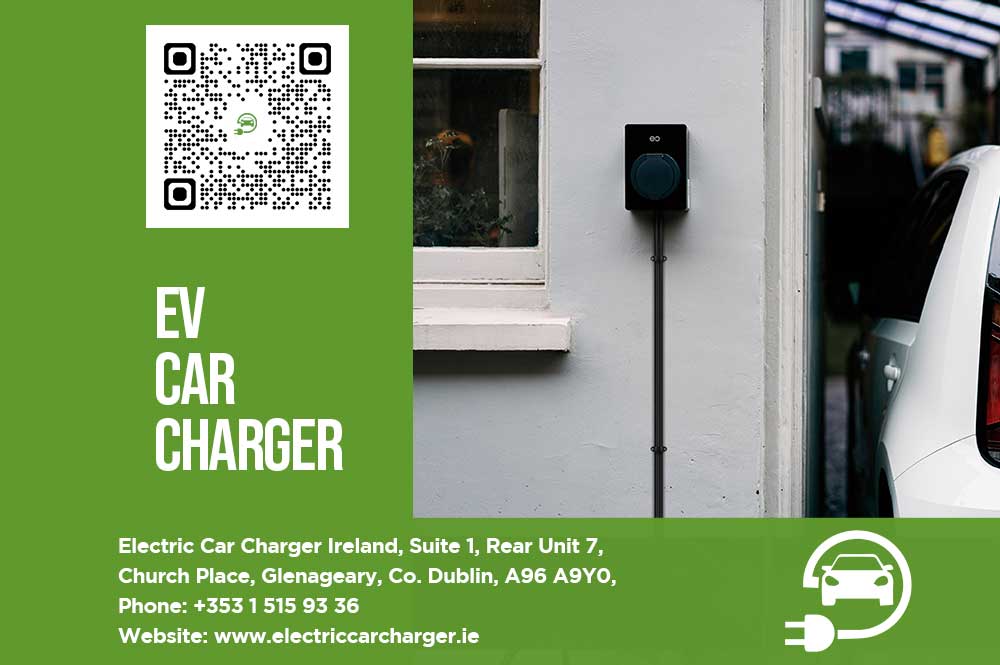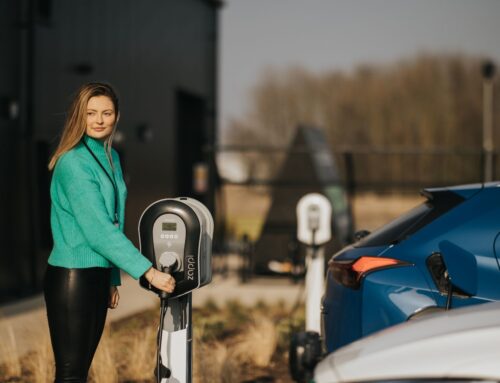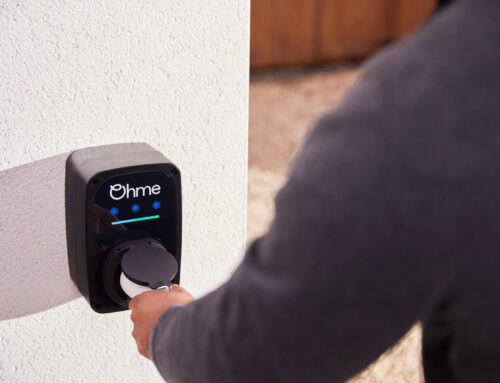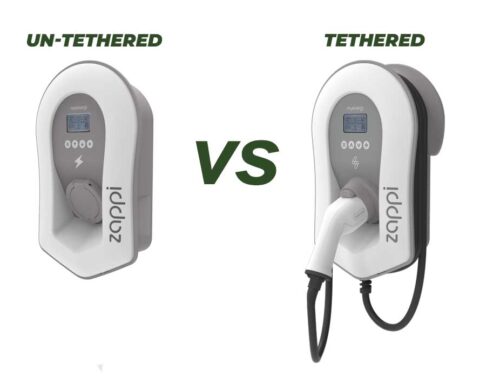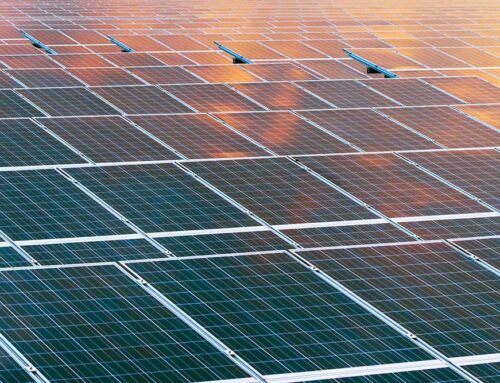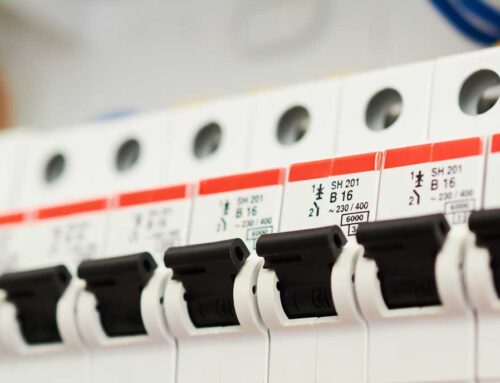Table of Contents
Understanding EV Home Chargers
The Environmental Impact of EV Home Chargers
EV Home Charger Grants and Incentives in Ireland
The Cost of Charging an Electric Vehicle at Home
The Future of EV Home Chargers and Environmental Sustainability
EV Car Charger – Imagine living in a world in which charging your electric car at home were as effortless as charging up your phone. As more and more people embrace electric vehicles (EVs), home charging solutions like electric vehicle home charger units (EVHLCs) become ever more essential to creating sustainable transportation alternatives and greener tomorrows. Not only are EV home chargers convenient and efficient; their impact also includes reduced environmental impacts of transportation while offering seamless experiences – truly making sustainable transport an accessible reality!
Understanding EV Car Chargers
Home chargers for electric vehicles (EVs) come in two main varieties, known as Type 1 and Type 2, which are critical distinctions in charger installation (More info on – Buying an Electric Car in Ireland). Type 1 chargers (or J1772 connectors) can typically be found on older EVs that feature five-pin plugs while Mennekes connectors, commonly seen today and widely adopted across Europe with seven-pin connections, are more contemporary and widely adopted standards compatible with modern vehicles in Ireland – most modern EVs require Type 2 charging solutions (More info on – Zappi Car Chargers). An increasingly popular home charging solution is a 7kW electric car charger unit, as this provides the ideal balance between charging speed and cost-efficiency.. A typical EV can typically be fully charged overnight using this type of charger; its capacity should meet most daily driving needs easily. As well as traditional 7kW chargers, smart chargers offer advanced features and functionality, taking electric vehicle charging to an entirely new level (More info on – The Future of Electric Vehicle Charging in Ireland). These intelligent devices can optimise energy use by automatically adapting charging schedules according to electricity rates and grid demand; additionally, they integrate with renewable sources, like solar panels for charging your EV with sustainable energy – offering convenient control via mobile apps that enable remote monitoring & management, making the charging experience convenient & customisable for each driver.
The Environmental Impact of EV Car Chargers
One of the benefits of having an electric vehicle charger, at home is the ability to lower greenhouse gas emissions compared to using charging stations. By charging your EV at home using energy sources like Electric Ireland you can choose energy options such as wind or solar power. This leads to a carbon footprint. Contributes to a healthier more sustainable environment. Home chargers for vehicles offer the advantage of supporting grid stability. Potentially reducing energy costs through smart charging technology (More info on – Estimate EV Charging Costs in Minutes). These smart chargers can communicate with the grid to adjust charging rates based on real time electricity usage. During times of demand like off-peak hours smart chargers can automatically slow down charging rates easing pressure on the grid and potentially saving you money on your utility bill. Additionally load balancing helps ensure grid stability by promoting use of renewable energy sources. In addition to their benefits, a home EV Car Charger plays a role in decreasing greenhouse gas emissions in the transportation sector. By making charging easier and more affordable at home these chargers encourage a transition, to vehicles (More info on – The Future of EV Home Charging). As more EVs hit the roads we collectively reduce air pollution. Take steps towards combating climate change.
EV Car Charger Grants and Incentives in Ireland
In Ireland the Sustainable Energy Authority of Ireland (SEAI) offers a grant program to promote the use of home electric vehicle chargers. The SEAI grant can cover up to €300 for buying and setting up an electric vehicle charger at home. This financial support makes it easier for homeowners to set up a charging station for their vehicles encouraging the shift towards eco-friendly transportation. An increasingly popular home charging solution is a 7kW electric car charger unit, as this provides the ideal balance between charging speed and cost-efficiency. One important requirement is that the installation of the electric vehicle charger must be done by an electrician registered with Safe Electric Ireland (More info on – Commercial EV charger installation). This ensures that the setup is done safely and in compliance with all standards. Moreover the grant applies to installations of home EV chargers and cannot be used for purchasing second hand or refurbished units. Applying for the SEAI grant is simple and convenient, for homeowners. An increasingly popular home charging solution is a 7kW electric car charger unit, as this provides the ideal balance between charging speed and cost-efficiency. Upon approval the grant amount will be directly deposited into the applicant’s bank account. By using this grant owners of vehicles can greatly reduce the expense of setting up a charger at home making it a more convenient and appealing choice.
The Cost of Charging an Electric Vehicle with an EV Car Charger
One of the reasons to consider investing in a home charger, for an EV is the cost savings compared to using public charging stations. When you charge your vehicle at your residence you can benefit from electricity rates particularly during off peak periods. In Ireland many electricity providers offer special night rate plans that can significantly lower the cost of charging your EV To demonstrate the savings lets compare the costs of charging at home versus charging stations (More info on – Benefits and Options for At-Home EV Charging Stations). On average charging stations in Ireland typically charge between €0.30 and €0.50 per kilowatt hour (kWh). In contrast the average residential electricity rate is €0.23 per kWh. By charging your vehicle at home you could save up to 50% on your charging expenses. Furthermore, if you have access to night-rate electricity priced low as €0.08 per kWh, the savings on your EV charging could be more substantial.. Furthermore, if you have access to night-rate electricity priced low as €0.10 per kWh, the savings on your EV charging could be more substantial. Throughout the lifespan of your vehicle the money saved from charging at home can easily compensate for the costs of installing a charger. Moreover, with the growing availability of energy plans you can further cut down on your car charging expenses while endorsing eco energy sources (More info on – Electric Car Charging – EV Charging Guide For Beginners).
The Future of EV Car Chargers and Environmental Sustainability
As the electric vehicle sector advances so does the technology related to EV home chargers. One exciting development is directional charging also referred to as vehicle-to-grid (V2G) technology. With directional charging EVs not only receive power from the grid for charging but can also supply electricity back into the grid when needed. This innovation has the potential to turn EVs into energy storage units contributing to a reliable and sustainable electrical grid. EV home chargers equipped with V2G capabilities could be pivotal in facilitating the integration of energy sources into the grid. During times of energy production like sunny or windy days, surplus electricity can be stored in EV batteries via home chargers. This stored power can then be sent back to the grid during demand periods reducing dependence, on fossil fuel-powered plants and fostering a greener energy system. To truly unlock the potential of EV chargers, for homes in creating an eco tomorrow, it’s crucial to have backing from government policies and incentives. In Ireland, the government has set goals for EV usage. Is actively expanding the charging infrastructure. By offering grants tax breaks and financial assistance for installing home chargers the government can speed up the shift to transportation (More info on – EV home charger installation). Encourage more households to adopt sustainable travel practices. Furthermore the integration of EV Car Chargers with home systems shows promise. Smart home technology allows communication between the charger, home energy management systems and other connected devices. This integration enables optimised energy use, automated charging based on electricity rates and renewable energy availability as remote monitoring and control of the charging process. With the growth and evolution of the EV market the importance of EV home chargers in promoting sustainability continues to rise (More info on – The Importance of hiring Professional home EV charger installers). By embracing these cutting-edge technologies and encouraging the adoption of home charging solutions we can hasten our move, towards a transportation system and contribute to a more sustainable future.
Related search terms: EV charger Ireland, electric car charger Ireland, EV charging station Ireland, EV home charger Ireland, EV charger installation Ireland, electric vehicle charger Ireland, EV charger grant Ireland, EV charger cost Ireland, EV charging cable Ireland, EV charger type Ireland, best EV charger Ireland, fastest EV charger Ireland, portable EV charger Ireland, EV charger company Ireland, EV charger price Ireland, EV charger installer Ireland
Ever wondered about DC Fast Charging ….Check out our latest blog post for details.



